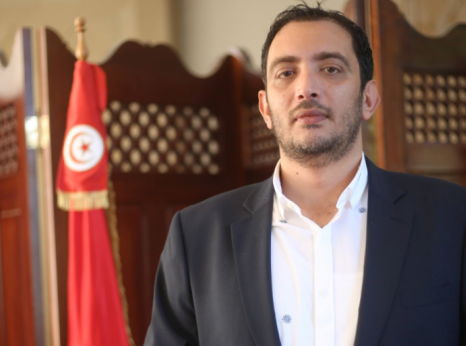Tunisia: Parliamentarian Facing Trial By Military Court

Yassine Ayari, a 40-year-old engineer who opposed President Ben Ali’s rule, was elected as a member of parliament in the 2018 partial elections representing Tunisians living in Germany. He was re-elected in 2019 under his political party, Hope and Work, this time representing Tunisians living in France. After leaving Tunisia in 2010, Yassine Ayari spent eight years in exile working as an engineer in Belgium and France. In 2017, he published a Facebook post in which he criticized former President Beji Caid Essebsi and his use of the army to "repress the population". In 2018, a military court found him guilty of "defaming the army" and sentenced him to two months imprisonment.
On 25 July 2021, after President Kais Saied announced the freezing of parliament and the lifting of parliamentary immunity, Yassine Ayari published several Facebook posts where he strongly criticized the President. In his online posts, which Amnesty International reviewed, Yassine Ayari fiercely criticized what he considered an abuse of power by the President, calling the 25 July 2021 decision to suspend the parliament "a military coup with foreign planning and coordination," and using words such as "Pharaoh" and "silly" to characterize the President. On 30 July 2021, at least 30 police officers in civilian clothes raided Yassine Ayari's home without showing an arrest warrant and took him to an unknown destination. His brother told Amnesty International that the family later learned that he had been taken to serve the 2018 two-month sentence pronounced by the Tunis military court for a Facebook post considered as defamatory of the army. The military court ordered his arrest after the lifting of immunity of all members of parliament, ordered by President Saied on 25 July 2021, at the same time as the suspension of parliament.
Since President Saied assumed new powers on 25 July 2021, there has been an increasing pattern of referral of civilians, including a journalist, a blogger and opposition politicians, before military courts. The military justice system has begun investigating or prosecuting at least 10 other civilians.
Prosecutions for “insulting” the army, the President or other state institutions are not recognizable crimes under international law and therefore incompatible with Tunisia’s obligations under Article 19 of the International Covenant on Civil and Political Rights (ICCPR). In 2011, the United Nations Human Rights Committee, which monitors implementation of the covenant, issued guidance on the free speech obligations of governments under Article 19 that emphasized the high value that the ICCPR places upon uninhibited expression “in circumstances of public debate concerning public figures in the political domain and public institutions,” adding that, “State parties should not prohibit criticism of institutions, such as the army or the administration."
Allowing the prosecution of a civilian before a military tribunal is a violation of the right to a fair trial and due process guarantees. Guidance in 2003 on fair trials according to the African Charter on Human and Peoples’ Rights states that “[t]he purpose of Military Courts shall be to determine offenses of a purely military nature committed by military personnel."
Military courts played a key role in the repressive apparatus of the state under the presidencies of Habib Bourguiba, 1957-1987, and Zine El Abidine Ben Ali, 1987-2011. Under both presidents, persons were convicted in blatantly unfair trials before military courts for political crimes. While they underwent a partial reform following Tunisia's uprising, military courts remain under the undue control of the executive branch as the President of the Republic has ultimate control over the appointment of judges in these courts. In addition, both the general prosecutor who heads the military justice system, as well as all prosecutors in the military courts, who play a pivotal role in initiating proceedings, are serving members of the military, subject to military discipline, which places them under the direct orders of the executive branch.